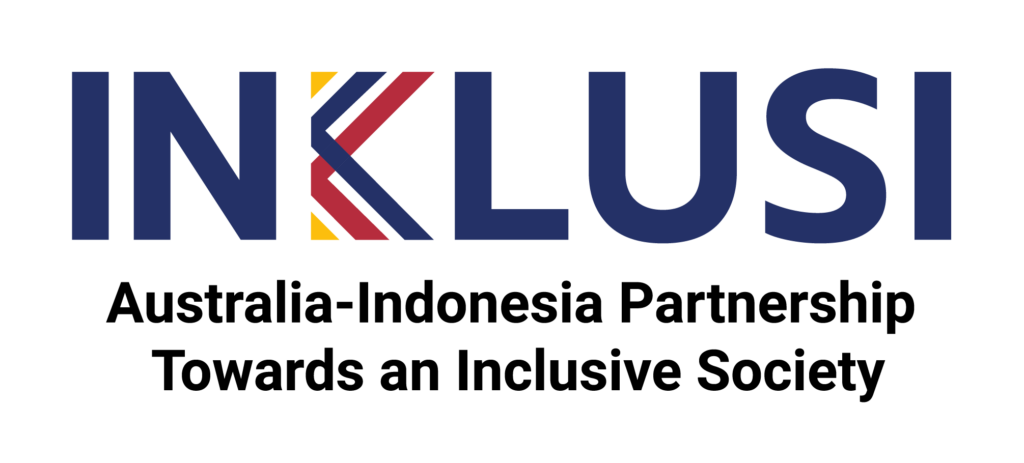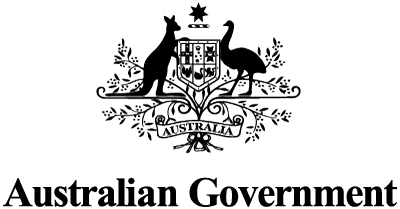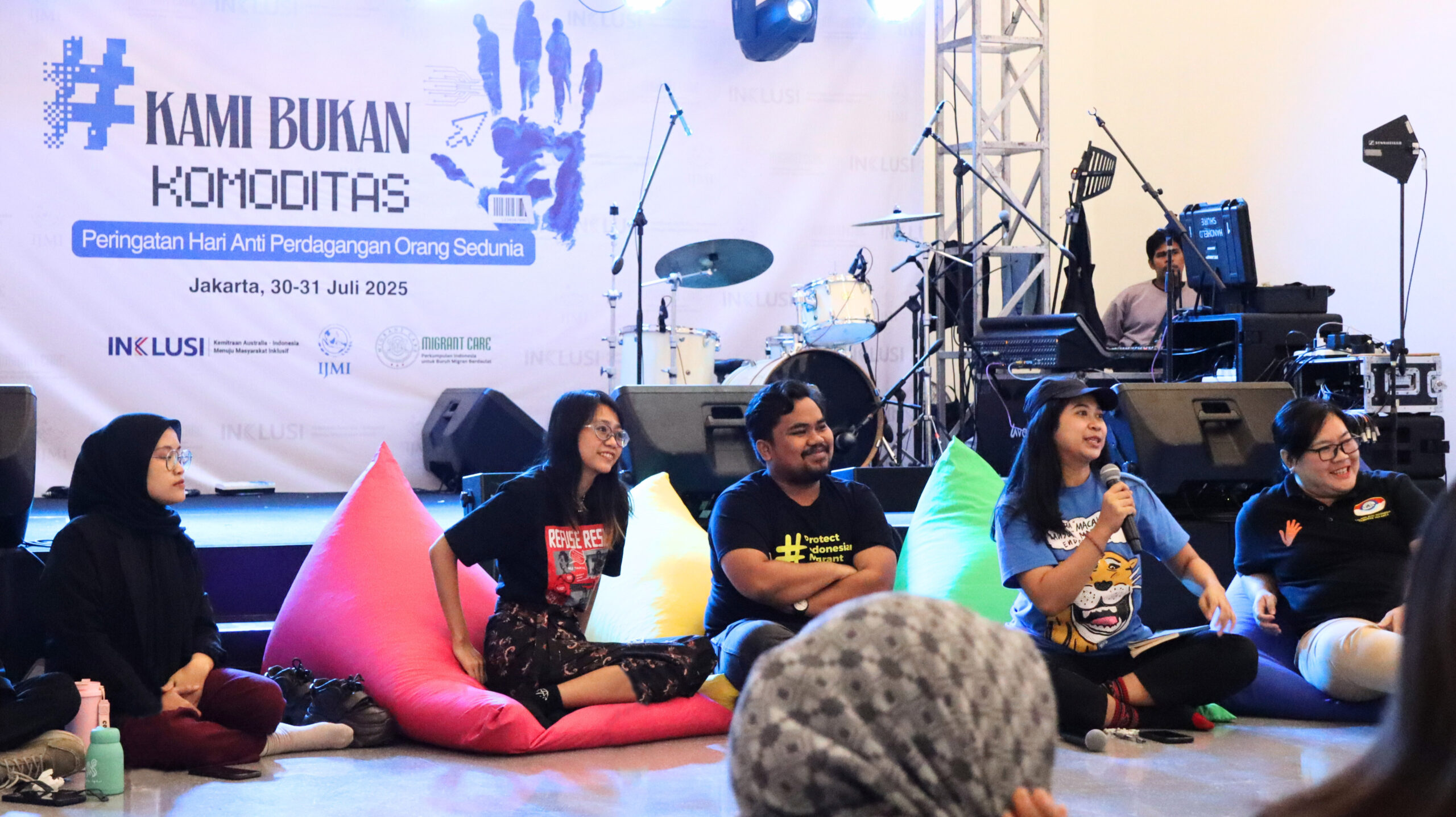To mark the 2025 World Day Against Trafficking in Persons, Migrant CARE held a series of events under the theme “We Are Not Commodities” on 30–31 July 2025 at the Oesman Effendi Gallery, Taman Ismail Marzuki, Jakarta.
The initiative served as a reflective and collaborative space for civil society, government institutions, youth communities, and the broader public to reinforce movements for decent work and safe migration. It aligned with the global campaign “Human Trafficking is Organised Crime – End the Exploitation”, which calls for stronger, collective efforts to end trafficking in persons.
Through discussions, exhibitions, workshops, and cultural performances, Migrant CARE invited the public to engage with the complex realities of trafficking and to join forces in prevention efforts. The series also offered a platform for sharing lived experiences, building public awareness, and strengthening networks among those on the frontlines of advocacy.
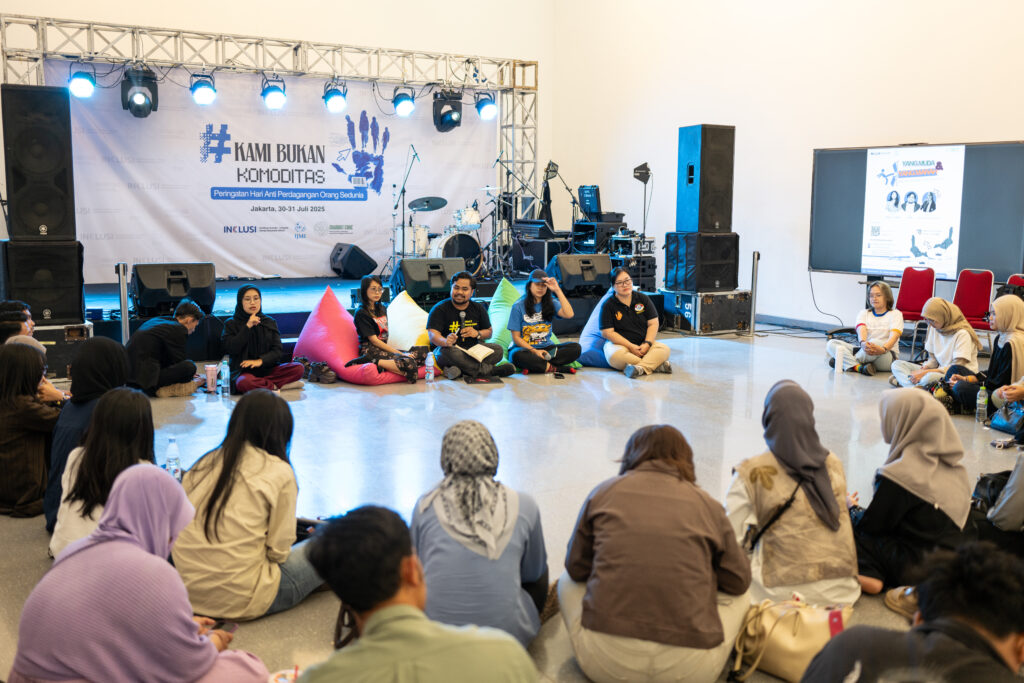
“The 2025 World Day theme reminds us that efforts to eradicate trafficking must be serious, organised, and inclusive of all stakeholders,” said Wahyu Susilo, Executive Director of Migrant CARE.
A key highlight was the public forum “Problems, Challenges, and Hopes for Preventing Human Trafficking in Indonesia”, which brought together representatives from the House of Representatives (DPR RI), Ministry of Foreign Affairs, National Police (POLRI), academia, and civil society organisations.
The discussion explored the effectiveness of national policies and regional cooperation within ASEAN, while emphasizing the urgent need for inter-agency collaboration to protect vulnerable groups from trafficking and exploitation.
Youth Engagement and Digital Resistance
Youth participation became a central force throughout the event. The interactive session “The Young and the Outraged” brought together young people from diverse communities to discuss emerging forms of trafficking in the digital age—such as online job scams, exploitative recruitment, and the growing crisis of decent work.
The forum encouraged youth to voice their concerns and ideas, build solidarity, and explore collective strategies to challenge injustice and exploitation in their everyday environments.
The event also marked the launch of MigrantCAst, Migrant CARE’s newest podcast platform for digital advocacy. Designed to reach younger audiences, MigrantCAst offers accessible conversations on decent work, safe migration, and anti-trafficking efforts—making complex issues more relatable and engaging.
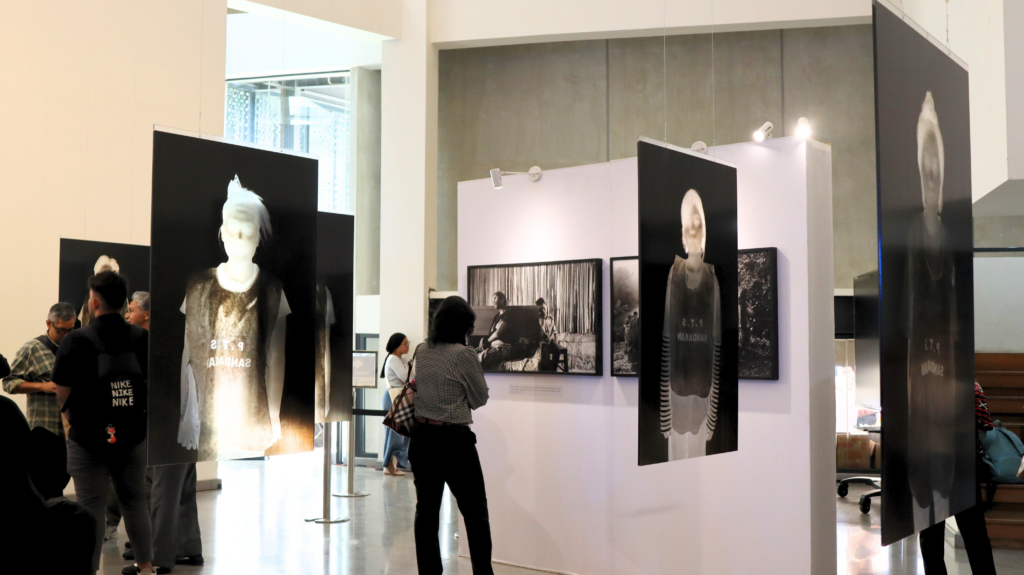
Visual and cultural storytelling played a powerful role in amplifying the campaign. The photo exhibition “Au Loim Fain” by Romi Perbawa portrayed the real-life stories of trafficking survivors through images that evoke deep empathy and reflection. The exhibition highlighted how trafficking today affects not only rural women, but also educated urban youth—underscoring that anyone, regardless of background, can become a target.
A poster-making workshop facilitated by Perempuan Mahardhika Bogor invited participants to translate advocacy messages into visual campaigns. The session demonstrated how art can become a compelling medium for promoting justice, equality, and workers’ rights.
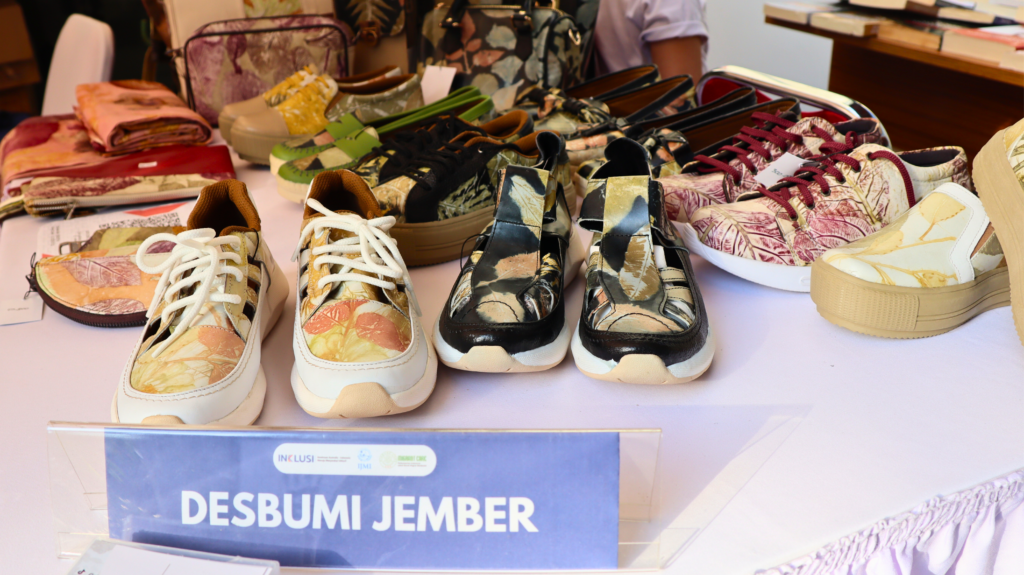
In parallel, a women’s economic bazaar featured products created by former migrant workers. The bazaar celebrated their resilience, creativity, and economic independence—illustrating how post-migration empowerment can take root through entrepreneurship and community-based recovery.
The two-day series concluded with an evening of music, poetry, and cultural expression at Taman Ismail Marzuki. Performances by Hardingga, Fufu Clan, The Brandals, and Efek Rumah Kaca, along with poetry readings by Anzar Mustikowati and Laura Muljad, offered a space for collective reflection—bringing messages of justice, dignity, and solidarity to life through art.
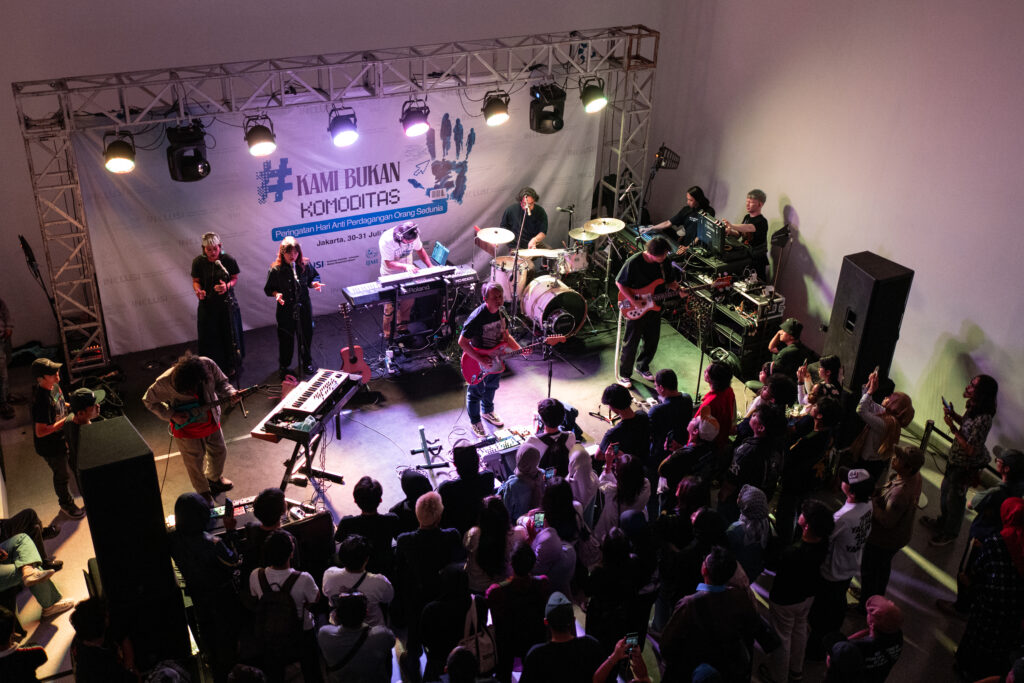
Through this initiative, Migrant CARE reaffirmed the importance of cross-sector and intergenerational collaboration in building a migration system that is safe, inclusive, and just. The events served as a shared space for dialogue, reflection, and collective action—reminding us all that everyone has the right to work and migrate with safety, dignity, and equality.
